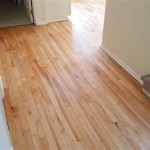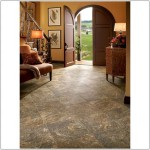Uncovering the Truth About Cork Flooring and Underlay
Cork flooring, renowned for its resilience, sustainability, and comfort, has become a popular choice for homeowners. However, understanding the intricacies of cork flooring installation, particularly the role of underlayment, is crucial to ensure a successful and long-lasting installation.
Types of Cork Flooring
Cork flooring comes in two main types: floating and glue-down. Floating cork flooring planks feature a built-in underlayment, while glue-down cork tiles require a separate underlayment installed beneath them.
Importance of Underlayment
Underlayment serves several essential functions, including:
- Moisture Barrier: Underlayment acts as a moisture barrier, preventing moisture from seeping into the subfloor and damaging the cork flooring.
- Acoustic Insulation: Underlayment reduces sound transmission, minimizing noise from foot traffic and other activities.
- Thermal Insulation: Underlayment provides thermal insulation, helping to regulate room temperature and reduce energy consumption.
- Stability: Underlayment adds stability to the cork flooring installation, preventing buckling and shifting.
- Comfort: Underlayment enhances the comfort underfoot, providing a softer and more resilient surface.
Choosing the Right Underlayment
When selecting underlayment for cork flooring, consider the following factors:
- Type of Cork Flooring: Choose an underlayment compatible with the type of cork flooring you are installing.
- Subfloor Type: Different subfloor types, such as concrete or plywood, require specific underlayment materials.
- Moisture Levels: If moisture is a concern, opt for an underlayment with a vapor barrier.
- Thickness: The thickness of the underlayment will impact the overall comfort and stability of the flooring.
- Cork Underlayment: Made from recycled cork, this underlayment provides excellent moisture resistance, comfort, and acoustic insulation.
- Rubber Underlayment: Durable and waterproof, rubber underlayment is an ideal choice for areas prone to moisture.
- Polyethylene (PE) Underlayment: PE underlayment is affordable and effective, providing moisture and sound insulation.
- Polystyrene (PS) Underlayment: Lightweight and inexpensive, PS underlayment is suitable for areas with minimal moisture concerns.
- EVA Foam Underlayment: Made from ethylene vinyl acetate, EVA foam underlayment offers excellent comfort and impact resistance.
- Always install underlayment according to the manufacturer's instructions.
- Ensure the subfloor is clean, dry, and level before installing underlayment.
- Overlap underlayment seams by at least 2 inches and tape them securely to prevent movement.
- Use a vapor barrier between the underlayment and subfloor if moisture is a concern.
Types of Underlayment for Cork Flooring
Various types of underlayment are suitable for cork flooring, including:
Installation Tips
For optimal results, follow these installation tips:
Conclusion
Understanding the importance of underlayment and choosing the right one is crucial for a successful and long-lasting cork flooring installation. By following these guidelines, you can enhance the comfort, durability, and sound absorption of your cork flooring, creating a beautiful and functional space.

Articles About Cork Flooring Installation Durability Finishes Cost

Cork Vs Rubber Underlayment Which One Is Better Upgradedhome Com

Advantages Disadvantages Of Cork Flooring Floorings

Articles About Cork Flooring Installation Durability Finishes Cost

Articles About Cork Flooring Installation Durability Finishes Cost

2024 Cork Flooring Installation Guide Cost Of Modernize

2024 Cork Flooring Installation Guide Cost Of Modernize

Waterproof Cork Flooring Look

Reviews For Qep 200 Sq Ft 48 In X 50 1 4 Natural Cork Underlayment Roll Pg The Home

Waterproof Cork Flooring Look
See Also







